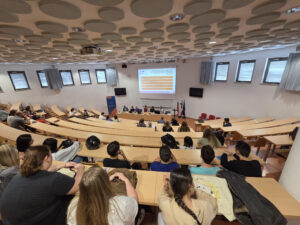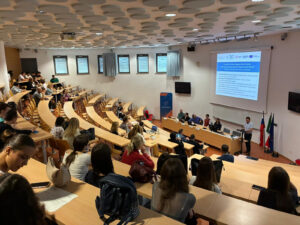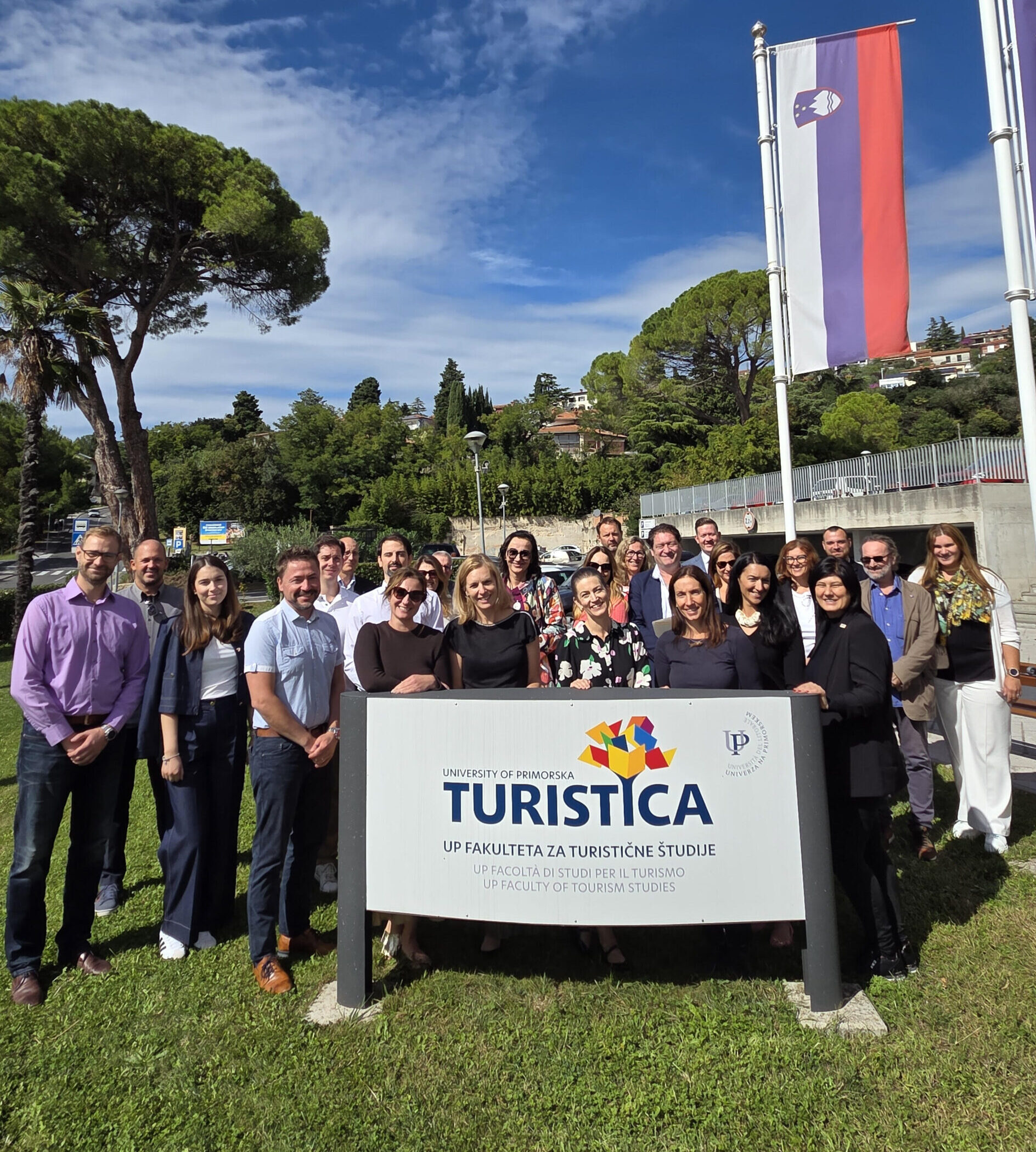On 26 September 2025 in Portoroz, hosted by University of Primorska, Faculty of tourism studies, an inspiring event titled “Towards Inclusive Regenerative Tourism: How Tourism Gives Back to People and the Planet?” gathered project partners, industry stakeholders, and local actors to reflect on the future of tourism.
 Representatives from all MAST partner countries, as panel members, highlighted how tourism can evolve beyond traditional sustainability to actively regenerate communities and ecosystems. Participants discussed concrete examples where tourism not only minimises negative impacts but creates positive value for local people, cultural heritage, and the environment.
Representatives from all MAST partner countries, as panel members, highlighted how tourism can evolve beyond traditional sustainability to actively regenerate communities and ecosystems. Participants discussed concrete examples where tourism not only minimises negative impacts but creates positive value for local people, cultural heritage, and the environment.
The stakeholder event highlighted diverse perspectives on how tourism can give back to people and the planet across different contexts. Discussions explored how heritage cities can channel tourism revenues into preserving cultural landscapes, supporting green spaces, and connecting universities, residents, and businesses to co-create community benefits. Insights from post-conflict societies emphasised tourism’s role in reconciliation, social cohesion, and inclusion, with community-based initiatives demonstrating how cultural narratives foster peace and resilience.
Experiences from island destinations underlined the importance of linking tourism with local farmers, producers, and artisans, while adopting regenerative practices such as circular economy models and ecosystem restoration. Urban perspectives focused on tackling overtourism through participatory governance, inclusive planning, and reinvesting tourism revenues into infrastructure and public spaces that improve residents’ quality of life.
Finally, lessons from Portorož showcased destination partnerships that integrate municipalities, businesses, and communities to create tangible benefits—ranging from accessible beaches and sustainable mobility to stronger local supply chains—illustrating the shift from sustainability to regeneration.
This activity strongly resonates with the mission of the MAST project, which aims to design innovative and sustainable tourism models, strengthen collaboration between universities, industry, and local communities, and promote inclusiveness and resilience in the sector. By focusing on regenerative practices, MAST emphasizes that tourism must be seen as a force that restores, enriches, and empowers.
The event marked an important milestone in aligning the project’s activities with European strategies for sustainable development, demonstrating how knowledge-sharing and cross-sector cooperation can shape tourism that truly gives back to humanity.


